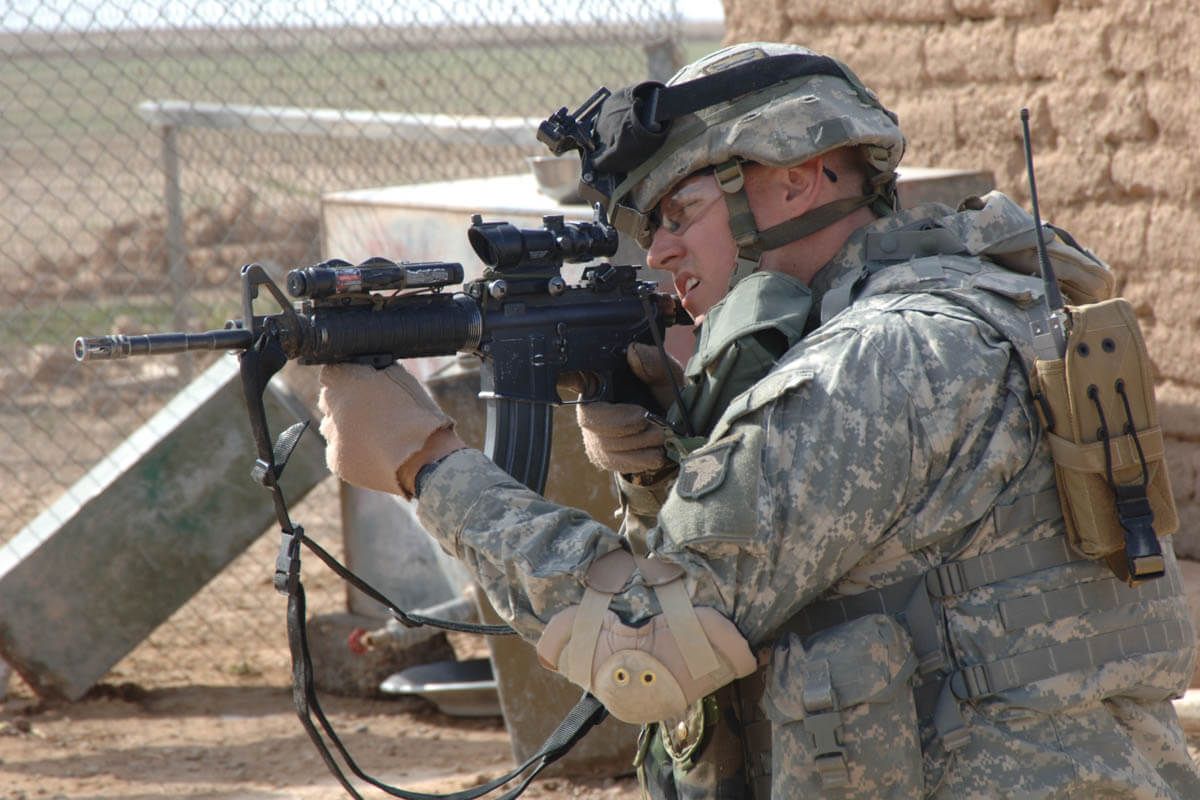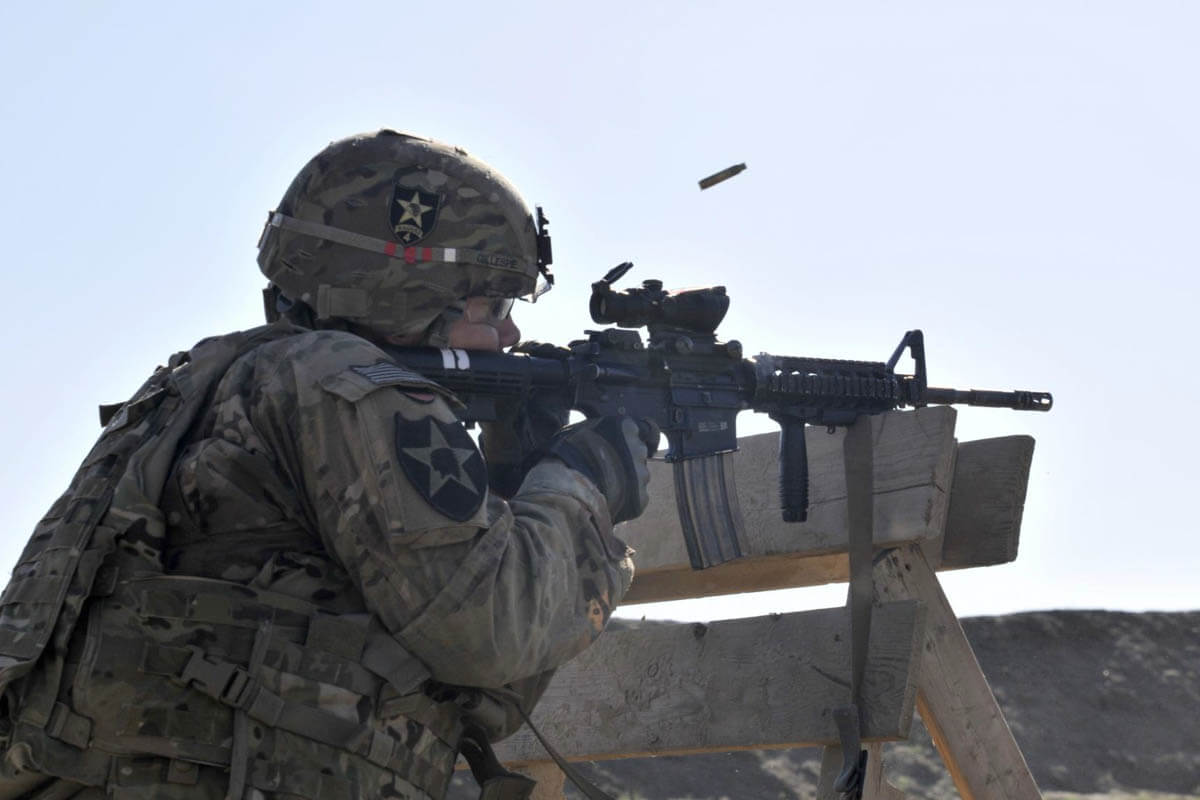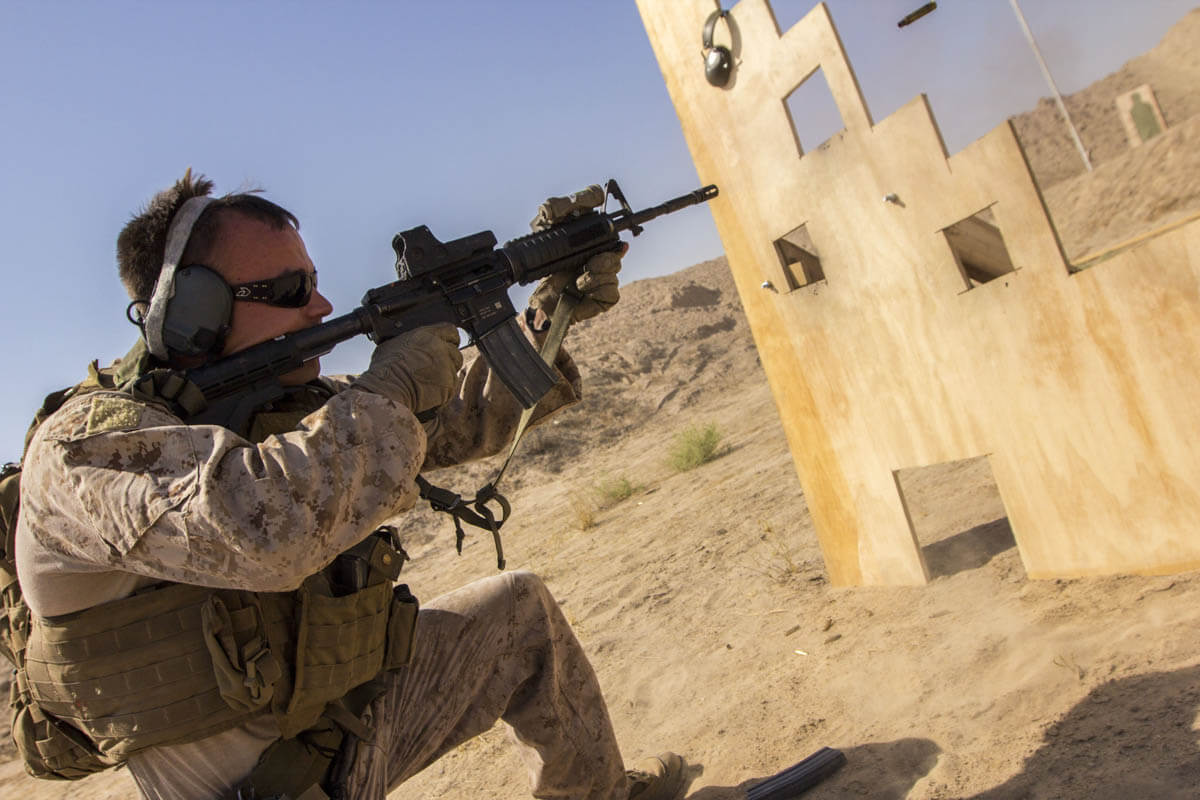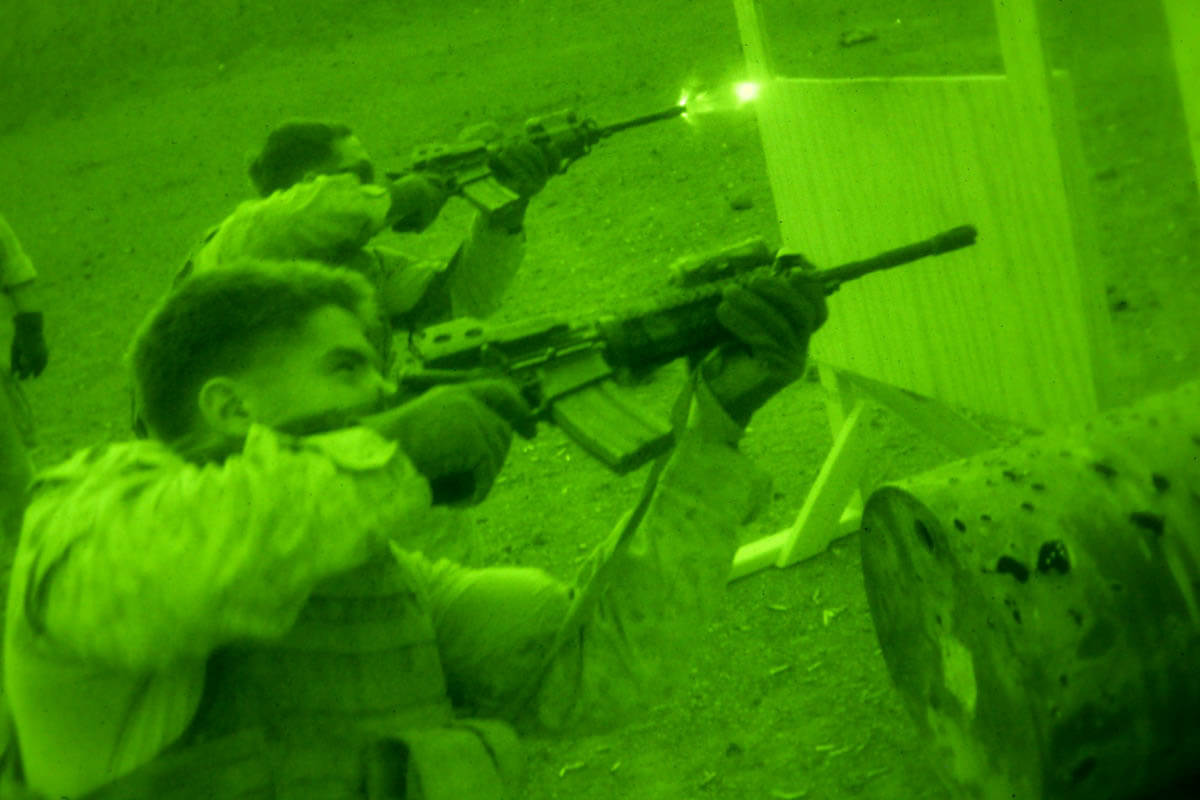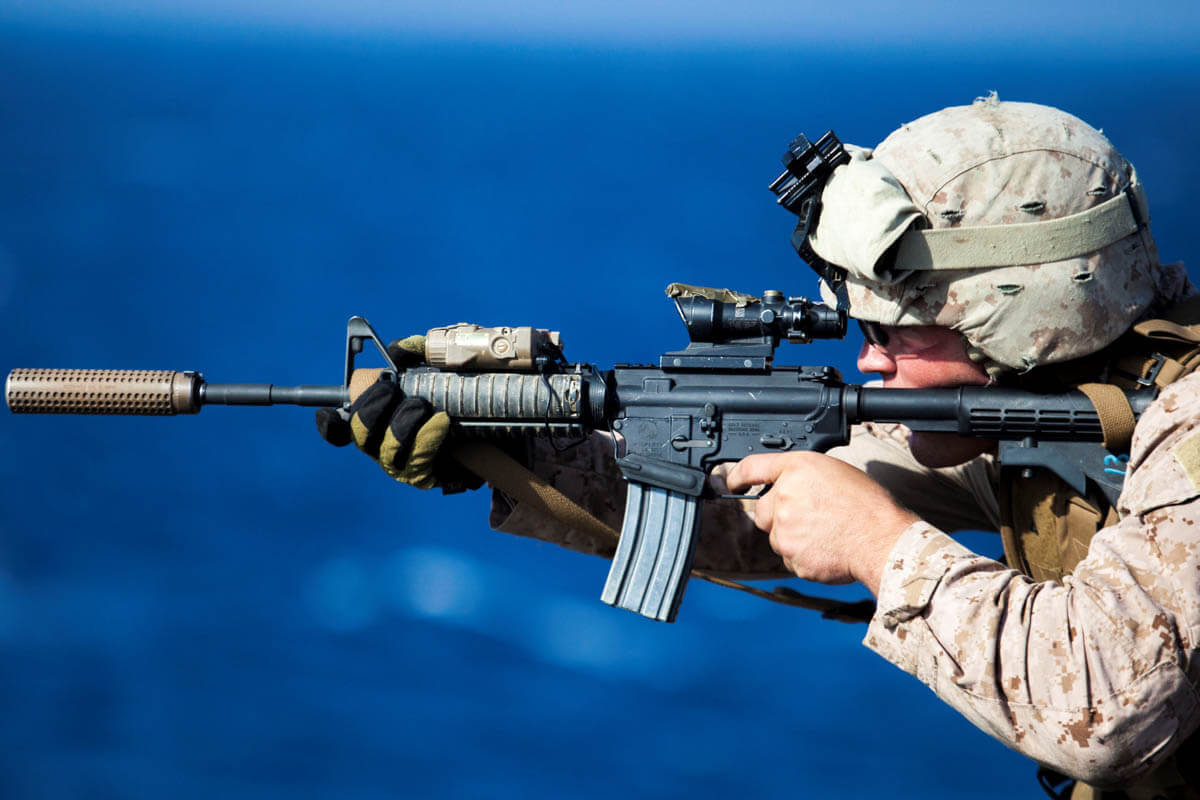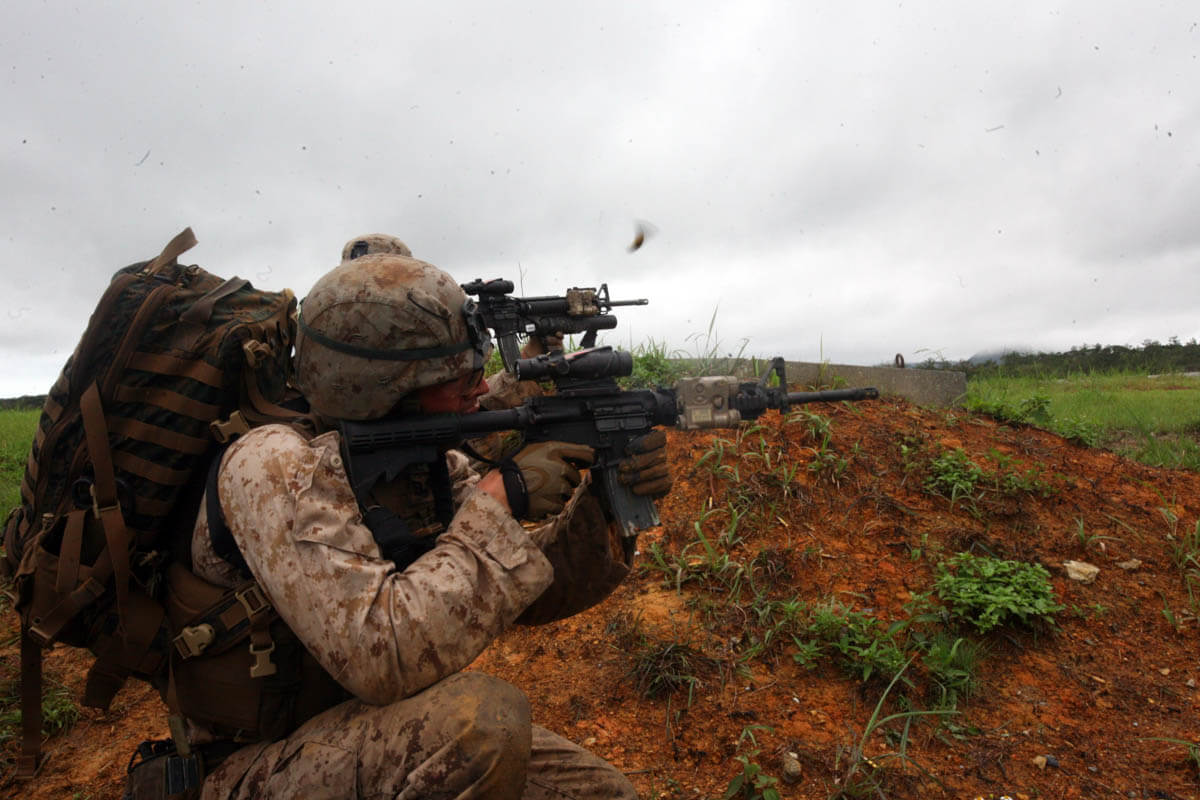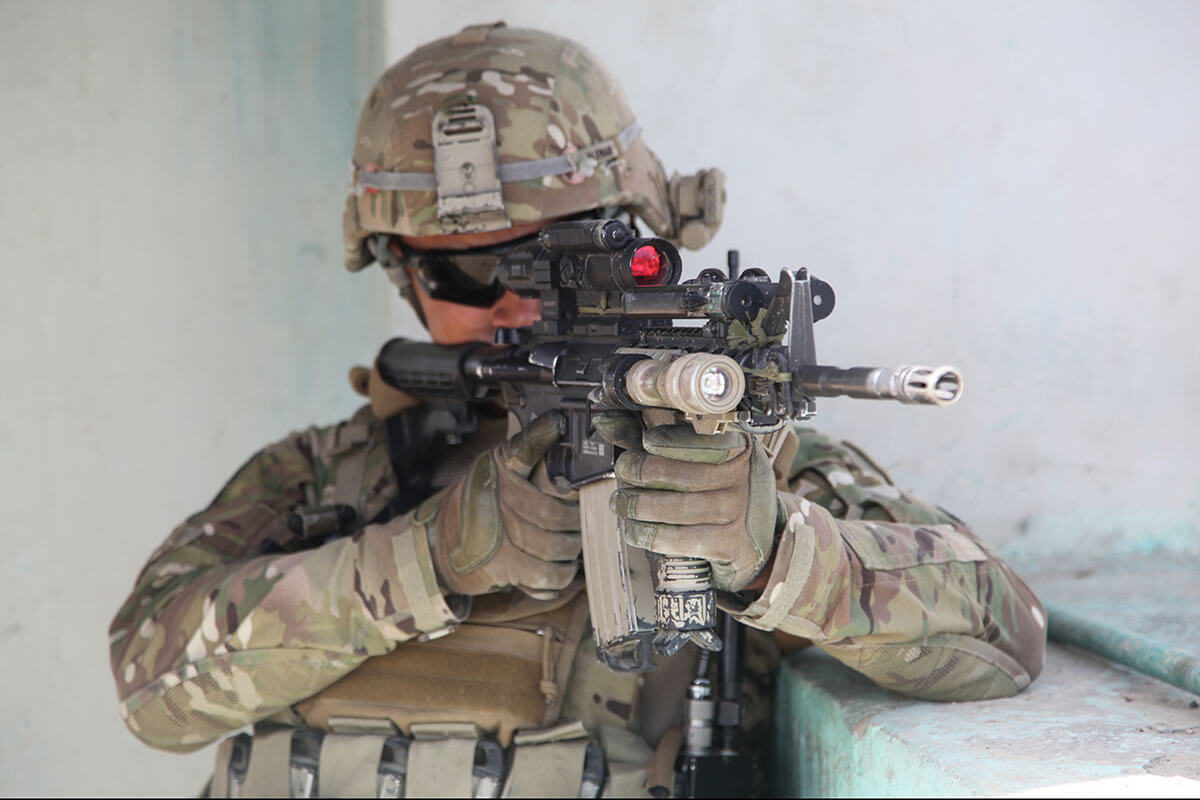The M4/M4A1 5.56mm Carbine is a lightweight, gas operated, air cooled, magazine fed, selective rate, shoulder fired weapon with a collapsible stock. It is now the standard issue firearm for most units in the U.S. military.
Equipped with a shorter barrel, collapsible stock and detachable carrying handle (with a built-in accessory rail) it provides soldiers operating in close quarters with improved handling and the capability to rapidly and accurately engage targets at extended range, day or night.
A shortened variant of the M16A2 rifle, the M4 carbine provides the individual soldier operating in close quarters the capability to engage targets at extended range with accurate, lethal fire. The M4-series Carbine achieves over 80% commonality with the M16A2 Rifle and replaces all M3 .45 caliber submachine guns, and selected M9 pistols and M16 rifles.
Want to know about the M4 Carbine? Here are a couple quick bullet point facts in this episode of "Bullet Points: M4 Carbine." Watch the video.
The Army is pursuing a two-phase PIP to keep the M4 carbine inventory strong. Phase I upgrades the Army’s M4s to the Special Forces’ M4A1, while Phase II explores future improvements for the M4A1 Carbine to deliver enhanced reliability, durability, ergonomics and zero retention.
There are several benefits to upgrading M4s to M4A1s. Compared to the M4 , the M4A1 has full auto capability, a consistent trigger pull, and a slightly heavier barrel. The heavier barrel is more durable and has greater capacity to maintain accuracy and zero while withstanding the heat produced by high volumes of fire. New and upgraded M4A1s will also receive ambidextrous fire control.
Project Manager Soldier Weapons (PM SW) initiated Phase I by modifying its contract for the production of M4s to the M4A1. PM SW took delivery of 9,582 new M4A1s to complete this action. In support, TACOM Life Cycle Management Command will have fielded approximately 6,000 M4A1 Carbines to the 101st Airborne Division by September and plans to field an additional 3,000 M4A1s to another unit within the next several months.
PM SW also held a competition for the manufacture of 24,000 additional M4A1 Carbines. The Army awarded a contract in April to Remington Arms Co. The award came under protest and the Army is currently developing several courses of action to comply with the Government Accountability Office ruling and concerns regarding the competition. Once the contract dispute is resolved, other services will be able to place M4A1 and M4 orders against the contract as well.
The main thrust of Phase I is to upgrade existing M4s to the M4A1 configuration. The Army authorized the conversion of all M4s to the M4A1 standard with the upgrade currently budgeted for 300,000 M4s. The Army will complete the upgrades through the purchase of components that support modification work orders (MWO) that will be applied by Small Arms Readiness and Evaluation Teams (SARET).
The Army awarded six contracts for MWO kit components to date. Five of the awarded contracts went to small businesses. The awards reflect a success in the Army’s strategy to broaden the opportunities for small arms contractors and strengthen the diversity of the industrial base. PM SW anticipates awarding the final contract this summer for the barrel and bolt assembly. SARET is scheduled to begin upgrading M4s at a maximum rate of 8,000 a month beginning in late summer 2013.
PM SW completed its best value M4 carbine bolt and bolt carrier assembly competition in April 2012, though the competition was scheduled to conclude in summer 2013. More than six months of testing and evaluation determined that none of the 11 competing designs met the overall requirements outlined in the solicitation. The M4’s current bolt and bolt carrier assembly outperforms the competing designs in the areas of reliability, durability, and high-temp/low-temp tests. The Army saved nearly $2 million as a result of the early completion of the competition.
The conclusion of the bolt competition, however, does not impact the search for a better forward rail assembly. PM SW completed bid sample testing for a forward rail assembly competition in early August. The Army may award contracts to up to three finalists in early 2013 with the selection of a final winner in early 2014. If the Army determines that the winning rail system should be procured, delivery of new rails is anticipated in the summer of 2014.
The M4 PIP is just another step in a long history of continuously improving Soldier weapons. The Army has already made more than 90 performance “Engineering Change Proposals” to the M4 carbine since its introduction. Improvements have been made to the trigger assembly, extractor spring, recoil buffer, barrel chamber, magazine and bolt, as well as ergonomic changes to allow Soldiers to tailor the system to meet their needs. Today’s M4 carbine is quite different “under the hood” than its predecessors and tomorrow’s M4A1 will be even further refined to provide Soldiers with an even more effective and reliable weapon system.


